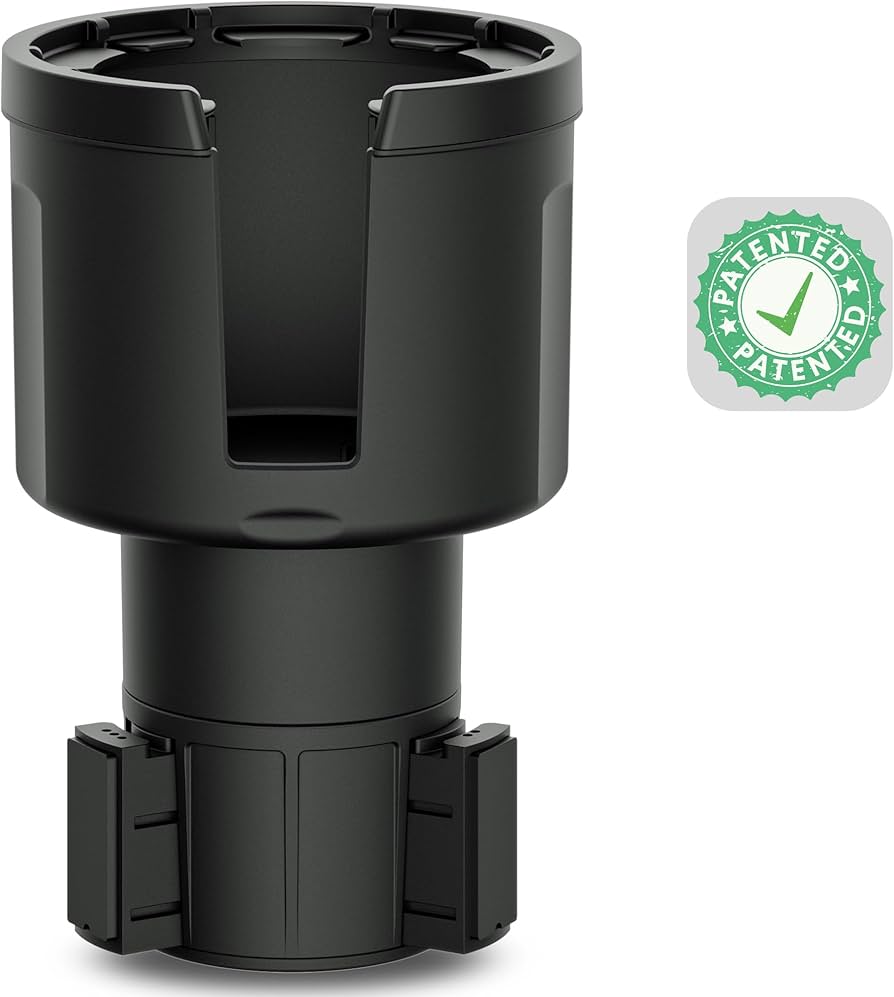As an Amazon Associate, I earn from qualifying purchases
Your car won’t turn off. This issue can be frustrating and puzzling.
Understanding the reasons behind it is crucial. Imagine turning off your car’s ignition, but the engine keeps running. This can be both surprising and annoying. Several factors can cause this problem. It could be a faulty ignition switch, a stuck relay, or an issue with the fuel system.
Each of these issues needs attention to prevent further complications. In this blog post, we will explore the potential causes and solutions for a car that refuses to shut down. By identifying the root of the problem, you can save time and avoid costly repairs. Let’s dive into the possible reasons and how to address them effectively.
Common Causes
When your car won’t turn off, it can be frustrating and confusing. Several factors could cause this issue. Understanding the common causes can help you diagnose and fix the problem.
Ignition Switch Problems
The ignition switch is crucial for starting and stopping your car. A faulty ignition switch might not send the correct signals. This can prevent your car from turning off. Dirt and debris can also jam the switch. Replacing or cleaning the ignition switch may solve the issue.
Faulty Electrical System
Your car’s electrical system controls many functions. A problem with the wiring can lead to the car not turning off. Damaged or loose wires might disrupt the power flow. This can keep the engine running even after you remove the key. Checking and repairing the wiring can resolve the issue.
Initial Checks
Experiencing a car that won’t turn off can be frustrating. Before diving into complex solutions, start with some initial checks. These steps are simple and might quickly solve the problem.
Inspect Key Position
Ensure the key is in the correct position. Sometimes, the key might not be turned to the “Off” position. This can prevent the car from shutting down. Gently turn the key back and forth to see if it helps. If the key feels stuck, it could be due to wear and tear or a misalignment in the ignition cylinder.
Here’s a quick checklist:
- Check if the key is fully turned to “Off”.
- Ensure there’s no debris in the ignition slot.
- Try using a spare key to rule out key damage.
Check Gear Shift
Another important check is the gear shift. Some cars won’t turn off if they are not in the correct gear. Ensure your car is in “Park” or “Neutral”. This can be a common issue for automatic transmissions.
If you drive a manual transmission, ensure the car is in neutral and the handbrake is engaged. A quick check of the gear shift position could save you a lot of trouble.
Steps to verify gear shift:
- Move the gear shift to “Park” or “Neutral”.
- Check if the handbrake is engaged.
- Attempt to turn off the car again.
These initial checks are straightforward and often overlooked. By following these steps, you might resolve the issue quickly and efficiently.
Battery Issues
The car won’t turn off? Battery issues might be the culprit. The battery is crucial. It powers all electrical components. Problems with the battery can cause the car to stay on. Let’s explore two key areas: battery connection and battery health.
Battery Connection
Check the battery connections. Loose or corroded terminals can cause problems. Ensure the cables are tight. Clean any corrosion with a wire brush. A solid connection ensures proper power flow.
Battery Health
Examine the battery’s health. Old or weak batteries can cause issues. Test the battery with a multimeter. A healthy battery should read 12.6 volts or more. If it’s lower, consider replacing it. A strong battery ensures the car functions correctly.

Credit: www.reddit.com
Alternator Problems
When your car won’t turn off, it can be frustrating. One common issue might be alternator problems. The alternator plays a crucial role in your vehicle’s electrical system. Let’s explore how the alternator functions and why its belt condition is important.
Alternator Function
The alternator generates electricity for the car. It powers the electrical systems and charges the battery. If the alternator fails, the car might not turn off properly. The alternator works by converting mechanical energy into electrical energy. This process is essential for keeping the car’s battery charged.
Alternator Belt Condition
The alternator belt drives the alternator. If this belt is worn or broken, the alternator won’t work. A damaged belt can slip or break, stopping the alternator from charging the battery. Regularly check the belt for signs of wear and tear. Replace it if you see cracks or fraying. A well-maintained belt ensures the alternator functions correctly.
Starter Motor Faults
Is your car refusing to turn off? The culprit might be a starter motor fault. The starter motor is crucial for starting and stopping your engine. When it has issues, your car may not turn off properly. This can be frustrating and can lead to other problems. Let’s dive into the main components that might be causing this issue.
Starter Relay
The starter relay is an important part of the starter motor system. It sends power from the battery to the starter motor. When it fails, your car might not turn off. A faulty relay can stick in the “on” position. This keeps the engine running even when you remove the key. To fix this, you may need to replace the relay.
Starter Solenoid
The starter solenoid is another key component. It acts like a switch to engage the starter motor. If the solenoid is stuck, your engine may not shut down. This happens because the solenoid keeps sending power to the starter motor. Replacing the solenoid can solve this problem. It ensures your car turns off when you want it to.

Credit: www.reddit.com
Fuel System Concerns
If your car won’t turn off, it could be due to fuel system concerns. The fuel system in a car is crucial for its operation. Problems in this system can cause the engine to keep running even when you turn off the ignition. Let’s dive into some common issues related to the fuel system.
Fuel Pump Relay
The fuel pump relay controls the power supply to the fuel pump. If the relay is stuck in the on position, the fuel pump will continue to run. This keeps the engine supplied with fuel, preventing it from shutting down. Replacing the faulty relay can solve this issue. Check the relay in the fuse box under the hood.
Fuel Shutoff Valve
The fuel shutoff valve stops the flow of fuel to the engine. A malfunctioning valve may not close properly, causing the engine to keep running. Dirt or debris can block the valve, preventing it from closing. Cleaning or replacing the valve can fix this problem. Regular maintenance of the fuel system can prevent such issues.
Electrical Wiring
Electrical wiring plays a crucial role when your car won’t turn off. Faulty or damaged wiring can lead to various issues. These issues may include the engine continuing to run. Regular inspection of the electrical system can help identify the problem.
Wiring Inspection
Start by inspecting the wiring connected to the ignition switch. Check for any signs of wear, fraying, or damage. Damaged wires can cause electrical shorts. These shorts might prevent your car from turning off. Ensure all connections are secure and in good condition.
Trace the wiring from the ignition switch to the fuse box. Look for any loose or disconnected wires. A loose wire can disrupt the electrical system. This disruption can keep the engine running even after turning off the key.
Fuse Box Examination
Next, examine the fuse box for any blown fuses. A blown fuse can affect the electrical system. It can cause the car to keep running. Replace any blown fuses with new ones of the same rating.
Check the fuse box for any signs of corrosion. Corrosion can interfere with electrical connections. Clean any corroded areas with a small brush. Ensure all fuses and relays are properly seated in their slots.
Sometimes, the problem could be with a specific relay. Relays control various electrical components in your car. Swap the suspected relay with a similar one from the fuse box. This can help identify if a faulty relay is the cause.

Credit: www.youtube.com
Professional Help
Experiencing a car that won’t turn off can be stressful. When DIY solutions fail, professional help is crucial. Skilled mechanics can quickly diagnose and fix the issue. Let’s explore when to seek assistance and how to choose the right mechanic.
When To Seek Assistance
Not all car problems require a professional. Yet, some signs indicate it’s time to seek help.
- Electrical Issues: If the car’s electrical system behaves erratically.
- Engine Light: When the check engine light stays on.
- Unusual Noises: Strange sounds when trying to turn off the car.
- Persistent Problems: When the issue recurs despite attempts to fix it.
These signs point to deeper issues needing a mechanic’s expertise.
Choosing A Mechanic
Finding a reliable mechanic ensures your car receives proper care. Consider these factors:
- Experience: Look for mechanics with years of experience.
- Certifications: Ensure they have certifications like ASE (Automotive Service Excellence).
- Reviews: Check customer reviews on Google and Yelp.
- Warranty: Choose a shop that offers a warranty on their work.
- Cost: Compare prices, but don’t compromise on quality.
Making an informed decision can save time and money. Opt for trusted professionals to ensure your car’s longevity.
Frequently Asked Questions
Why Won’t My Car Turn Off?
This issue often stems from a malfunctioning ignition switch or electrical problem. It could also be due to a stuck relay or engine control module failure.
Can A Faulty Ignition Switch Cause This Problem?
Yes, a faulty ignition switch can prevent your car from turning off. It may fail to break the electrical connection.
How Do I Fix A Car That Won’t Turn Off?
First, try disconnecting the battery. If that doesn’t work, consult a mechanic. They can diagnose and repair the issue.
Is It Safe To Drive A Car That Won’t Turn Off?
No, it’s not safe. Continuing to drive may cause further damage. Get it checked by a professional immediately.
Conclusion
Fixing a car that won’t turn off can be stressful. Understanding the common causes helps. Always check the ignition switch and electrical system. Don’t forget to inspect the fuel system too. Regular maintenance can prevent such issues. If unsure, consult a professional mechanic.
Safety should always come first. Ignoring the problem can lead to bigger issues. Stay proactive with car care. Save time and money by addressing problems early. Keep your car running smoothly and safely.
As an Amazon Associate, I earn from qualifying purchases


